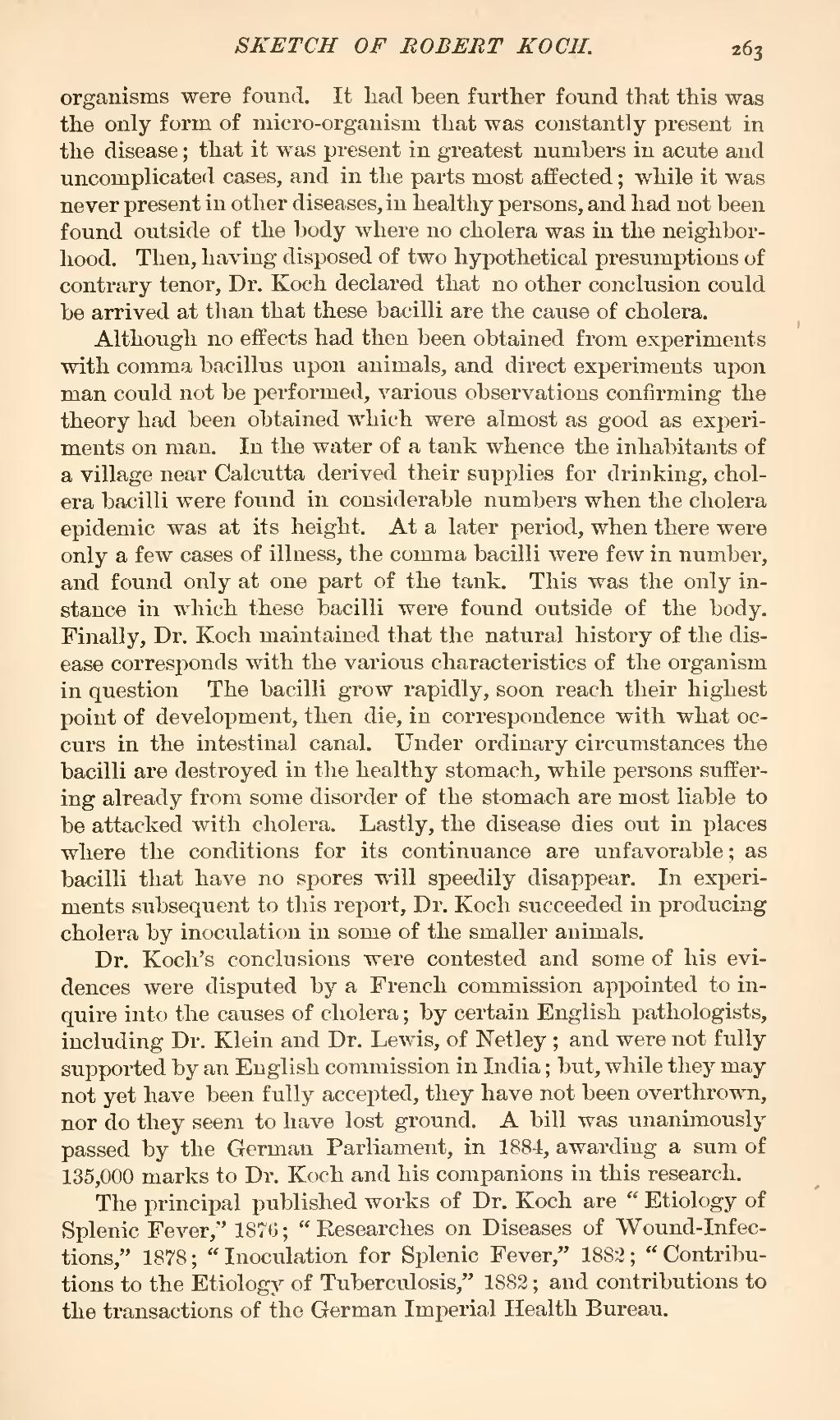organisms were found. It had been further found that this was the only form of micro-organism that was constantly present in the disease; that it was present in greatest numbers in acute and uncomplicated cases, and in the parts most affected; while it was never present in other diseases, in healthy persons, and had not been found outside of the body where no cholera was in the neighborhood. Then, having disposed of two hypothetical presumptions of contrary tenor, Dr. Koch declared that no other conclusion could be arrived at than that these bacilli are the cause of cholera.
Although no effects had then been obtained from experiments with comma bacillus upon animals, and direct experiments upon man could not be performed, various observations confirming the theory had been obtained which were almost as good as experiments on man. In the water of a tank whence the inhabitants of a village near Calcutta derived their supplies for drinking, cholera bacilli were found in considerable numbers when the cholera epidemic was at its height. At a later period, when there were only a few cases of illness, the comma bacilli were few in number, and found only at one part of the tank. This was the only instance in which these bacilli were found outside of the body. Finally, Dr. Koch maintained that the natural history of the disease corresponds with the various characteristics of the organism in question The bacilli grow rapidly, soon reach their highest point of development, then die, in correspondence with what occurs in the intestinal canal. Under ordinary circumstances the bacilli are destroyed in the healthy stomach, while persons suffering already from some disorder of the stomach are most liable to be attacked with cholera. Lastly, the disease dies out in places where the conditions for its continuance are unfavorable; as bacilli that have no spores will speedily disappear. In experiments subsequent to this report, Dr. Koch succeeded in producing cholera by inoculation in some of the smaller animals.
Dr. Koch's conclusions were contested and some of his evidences were disputed by a French commission appointed to inquire into the causes of cholera; by certain English pathologists, including Dr. Klein and Dr. Lewis, of Netley; and were not fully supported by an English commission in India; but, while they may not yet have been fully accepted, they have not been overthrown, nor do they seem to have lost ground. A bill was unanimously passed by the German Parliament, in 1884, awarding a sum of 135,000 marks to Dr. Koch and his companions in this research.
The principal published works of Dr. Koch are "Etiology of Splenic Fever," 1876; "Researches on Diseases of Wound-Infections," 1878; "Inoculation for Splenic Fever," 1882; "Contributions to the Etiology of Tuberculosis," 1882; and contributions to the transactions of the German Imperial Health Bureau.
